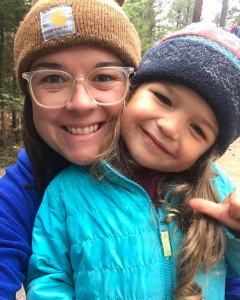DISCLAIMER: For this post and the research it is accompanied by, when I refer to ‘women’ I am referring to cisgender females. This is not to discredit the fact that transgender people and people who identify as male can also produce children. With that being said, I would like to acknowledge that this post will be primarily focused on the experiences of cisgender women, but I do not discredit the added difficulties that face male, transgender, LGBTQIA+, persons of color, immigrant, and disabled individuals.
Despite being advocates for justice and equality, female lawyers continue to struggle with fairness in the workplace. Today, 38% of lawyers are female, yet we continue to fight for our space within the working system. (Nassar, 2021). Compared to their male colleagues, female lawyers are more likely to “be interrupted, mistaken for non-lawyers, do more office housework, and have less access to prime job assignments.” (Elsesser, 2018). This number increases for female attorneys of color and those that identify within the LGBTQ community. (Elsesser, 2018). Even the highest respected women within the legal field face gender discrimination. 66% of all interruptions on the court are directed towards the three women who sit on the Supreme Court of the United States (Ginsburg, Sotomayor, and Kagan). (Elsesser, 2018). This statistic implores us to ask; if they cannot gain the respect and equality from others within the legal field that they are entitled to, how are we? While there are disagreements within the legal communityfor the difference in treatment between genders within the profession, undoubtedly, they continue to exist.
Like all women, attorneys struggle to earn equal pay. A study revealed that for law firm partners, men earn 44% more than women firm partners. (Elsesser, 2018). Even highly successful female attorneys fail to yield relatively equal pay. A study found that “the top 10 percent of female lawyers earn more than $300,000 a year, while the top 10 percent of male lawyers earn more than $500,000”. (Nassar, 2021). This equates to sixty cents on the dollar, lower than the average pay disparity for all working women.
The inequality of pay affects women of color more drastically than their white counterparts. Women of color continue to earn between $0.16 and $0.24 less than their white female colleagues. (Hardy, 2021). While the gender pay gap is an issue, it affects women of color the most and is an issue that continues to fail to be corrected. Women of color are also one of the least represented within the legal field. According to research, “2.8 percent of equity partners in Big Law were women of color, compared to 20.6 percent of all women (a 4.6 percent increase since 2007).” (Hardy, 2021). Sadly, women of color face both gender and racial discrimination within their workplace. This aids in the ongoing problem of lack of representation and platforms to address the obstacles they face.
Sexual harassment plays a large role in gender discrimination at the workplace for female attorneys. Almost two-thirds of women suffered from sexual harassment while working at a law firm. (Stanley, 2017). However, only a small percentage, 18%, of women reported their experiences. (Stanley, 2017). The women in the survey stated the main reason for their silence was due to the law firm partners making up a large portion of the problem. Almost 60% of the sexual harassment experiences, in both verbal and physical forms, originated from firm partners. (Stanley, 2017). While both males and females have addressed the problem, the genders disagreeon how serious law firms consider the problem. While 90% of males find their law firms take sexual harassment very seriously, only 65% of females agreed. (Stanley, 2017). One-fourth of female attorneys felt their firms could do more to discourage sexual harassment, while only 6% of male attorneys agreed. (Stanley, 2017).
The good news is these trends of pay disparities, differing job duties, sexual harassment experiences, and other gender discriminations within the workplace have decreased with time. This illustrates that while an ongoing problem, the more awareness and recognition of these issues within the legal field, the more likely they are to be addressed appropriately.
For tips on how to battle these challenges, visit Female Lawyers FaceWidespread Gender Bias
or Female Lawyer Discrimination Challenged in the Courtroom
By: Quinn Motichka
Resources
Elsesser, Kim. “Female Lawyers Face Widespread Gender Bias, According to New Study.” Forbes, Forbes Magazine, 5 Oct. 2018, https://www.forbes.com/sites/kimelsesser/2018/10/01/female-lawyers-face-widespread-gender-bias-according-to-new-study/?sh=37d48d334b55.
“Female Lawyer Discrimination Challenged in the Courtroom.” Employment Lawyers | Manes & Narahari, 8 Feb. 2018, https://lawkm.com/female-lawyer-discrimination-challenged-in-thecourtroom/#:~:text=In%20a%20bar%20survey%20of%20more%20than%20400,female%20attorneys%20on%20the%20subject%20of%20gender%20discrimination.
Hardy, By: Kristen. “Don’t Forget About Women Lawyers of Color.” Marquette University Law School Faculty Blog, 12 Sept. 2021, https://law.marquette.edu/facultyblog/2020/02/dont-forget-about-women-lawyers-of-color/.
Nasser, Haya El. “Number of Women Lawyers At Record High But Men Still Highest Earners.” Census.gov, 8 Oct. 2021, https://www.census.gov/library/stories/2018/05/women-lawyers.html.
Stanley, Georgina. “Two-Thirds of Female Lawyers Have Experienced Sexual Harassment at Work, Research Finds.” Law.com International, 13 Oct. 2017, https://www.law.com/international-edition/2017/10/13/nearly-two-thirds-of-female-lawyers-have-experienced-sexual-harassment-at-work-research-finds/?slreturn=20220212181130.











